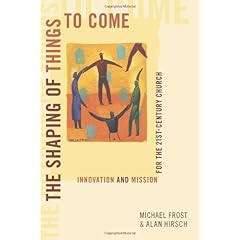Saddam is Dead
 I just heard on CNN that Saddam Hussein was executed this morning. I was waiting for this announcement since the fail of his appeal earlier in the week.
I just heard on CNN that Saddam Hussein was executed this morning. I was waiting for this announcement since the fail of his appeal earlier in the week.
It is definitely, as Alyssa said while we watched the report, hard to feel sad. This man was the epitome of evil. He directly and indirectly was involved in the deaths of hundreds of thousands of Iraqi's and Kurds and Iranians. His regime was drenched in the blood of his own people and he ruled with fear. But even knowing all this, I do feel a twinge of sorrow. Not so much for Saddam himself but for the philosophy (or theology as the case may be) that says capital punishment is the answer to the problem of violence. That restitution can be found in the taking of a life.
I recently came across a phrase that aptly describes this way of thinking. It is the "myth of redemptive violence"; the idea that violence in any form can bring about positive, redemptive change.
As a follower of Jesus, I struggle to come to terms with the nature of justice, particularly true, godly, justice. And, while I plan on doing more research, I do at this point in time accept at least some of the tenets of the "just war theory", in that in some cases for justice to prevail a coercive and sometimes fatal force is required (if a homicidal maniac was threatening my family and likely to kill or do serious harm to any one of them, I would, if I had the opportunity, use whatever force necessary to prevent their coming to harm - I make no apologies for this). Yet, as a Christian, I also believe that Jesus spoke clearly on the issue of capital punishment - the calculated and judicial act of taking a life in payment for a crime committed.
Jesus brought home the fact that, under the Law, we are all guilty and deserving of the death penalty - but he came to provide a different solution -to save not to condemn to death (John 3:16-17). Furthermore, when he was faced with the adulterous woman in John 8 (1-11), a woman who under the Law was clearly deserving of the death penalty, he reminded the accusers of their own guilt and freed the woman, with the command to "go and sin no more".
In this simple act Jesus made clear the two fold significance of sin and its penalty and his own mission of salvation, rather than condemnation. He set the captive free, regardless of her guilt because of the very same guilt (the guilt of sin) resting on the shoulders of those who, rightly, accused her.
I have no doubt that Saddam Hussein deserved life imprisonment. But I cannot accept that a deliberate act of violence, perpetrated against him by the Iraqi judiciary is any less bloodthirsty or any more redemptive than any of the violent acts committed by Hussein while he held control of Iraq.
As a follower of Jesus I must oppose the death penalty, no matter how fitting it may seem, because, with the sole exception of the cross of calvary, this kind of redemptive violence is a myth. We cannot take Jesus' act in John 8 and view it in isolation. Did he only mean his actions to be a reflection of the specific situation he was facing at that time? Or can we look beyond the surface, at his teaching's elsewhere in the gospels and say with conviction, Jesus did away with the death penalty in every circumstance? Just as most of us wouldn't accept any courts imposition of the death penalty for adultery, or for witchcraft or for homosexuality, if we are to be consistent, we also cannot accept the death penalty for murder or any other violent crime. No matter how appropriate it seems at the time.
Yes, Saddam Hussein died this morning for nothing. The memory of the crimes he committed will long outlive any fleeting sense of joy or justice achieved by the act of his execution. I just pray that God will, as he is in the habit of doing, work all these things for the good of those who love him!
For an interesting take (and I don't fully agree with everything Rob Bell is expounding here) have a listen to Rob Bell's series of sermons on the Myth of Redemptive Violence at Mars Hill - Part 1 - Part 2 - Part 3.


























